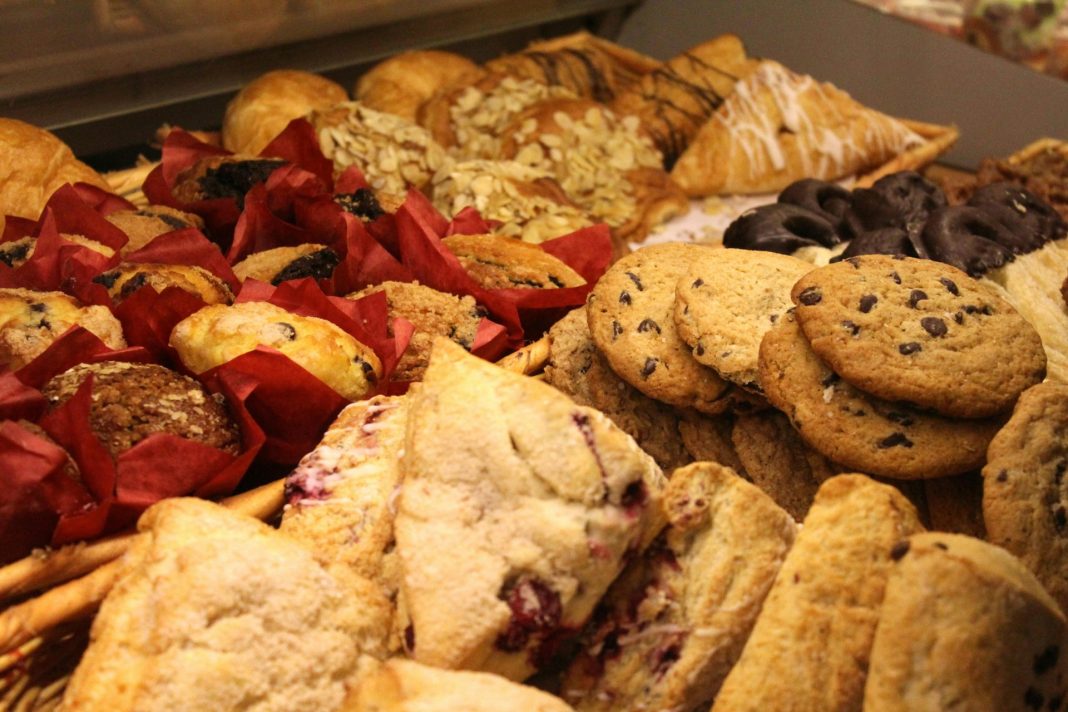Coeliac disease is an autoimmune disease in which the immune system mistakes gluten for a threat, attacking and causing damage to healthy tissue in the small intestine. There is no cure to coeliac; the only treatment is a strict gluten-free diet. Since gluten is the protein that gives structure to wheat, barley, and rye, you can imagine this is quite a challenge. Cross-contamination is also a major issue for people who suffer from the disease, with less than 20 parts per million, much less than a crumb, causing a reaction. Now to address some FAQs. Firstly: coeliac disease is not an allergy. Consequently, there is no EpiPen nor effective post-medication. Next: there is no immediate reaction or likelihood of death after consuming gluten. Rather, a host of insidious gut-related symptoms – the details of which I shall spare you, in case you’re reading this while eating – and other more general afflictions (think fatigue, brain fog, and mouth ulcers) gradually arise in the following days and weeks. This makes it difficult to identify the source of contamination in my diet, giving rise to a less-than-fun exercise in detective work.
Other than the obvious (i.e. breads, pastas, and baked goods), gluten manages to find its way into more surprising and rather annoying consumables like sausages, soy sauce, beer, and some flavourings. However, contrary to the concerns of some of my friends – who have swooped in to ‘save me’ on more than one occasion – potatoes and rice do not contain gluten, instead comprising a staple of my diet.
I was diagnosed with coeliac over eleven years ago, concurrently with my twin brother – but he doesn’t go to Oxford, so we won’t mention him again. This means I’ve had over a decade to master ‘the art of the coeliac’, as well as forget many of the pleasures and indulgences of my former life (e.g., bread with any semblance of structural integrity).
Let’s cut to today and address the elephants in the room. One of the most common questions I get is: “Can you still kiss someone after they’ve eaten gluten?”. The short answer is no, but it depends on how long ago they indulged. Usually, my kiss-ee would need to brush their teeth, which tends to kill the mood. However, owing to a recent decision out of my control, this issue no longer presents a problem in my day-to-day. The next most common question I get is, “Can you touch gluten?”. Here, the answer is yes. In fact, any anatomical surface is gluten-safe, so long as the gluten doesn’t reach my GI tract (from either direction).
As anyone with dietary restrictions will tell you, food-related conditions have many non-obvious effects on life at university – especially in relation to socialising. Dining with friends can often be a nightmare, especially without knowing the kitchen protocols of every establishment one’s group decides to visit (except Pho in the Westgate, which rumour has it I frequent weekly). Dietary restrictions also affect one’s ability to participate in certain JCR events, like bops. ‘Bop juice’ is a questionable concept for any student, but it’s even more of a risk to someone for whom cross-contamination is a concern.
The overall cost of living is also much higher for someone with coeliac. Coeliac-safe alternatives are often two or three times the cost of their gluten-containing counterparts; gone and fondly remembered are the days of sixty-pence Oaties from Tesco’s. Further, my coeliac existence complicates many living situations. The safest way to prevent possible cross-contamination is having separate cutlery, pots, pans, and work surfaces, as well as keeping ingredients like butter separate. This, obviously, makes cooking in other people’s kitchens overly complicated, with perpetual streams of washing up and stress. I have also heard some horror stories in relation to fellow coeliacs eating in college halls; this unfortunately disqualifies me from the experience of hall-swapping at most colleges. However, I must say: despite the lack of kitchen access for first-years, Jesus has always been outstanding in catering for me, and I can’t thank the kitchen team enough (big-up Bruno).
All in all, being a coeliac only adds one more dimension of anxiety to the already-stressful Oxford life. However, I don’t mean to sound too preachy, or to farm your sympathy. Mostly, I’ve written this article so I can send it to the next person who inevitably interrogates me when I respectfully decline their invitation to kiss. This doesn’t help me defend against the accusation that being coeliac is one of my only three personality traits, but it’s worth it for the time I’ll save. Anyway, it’s back to washing up for me.


